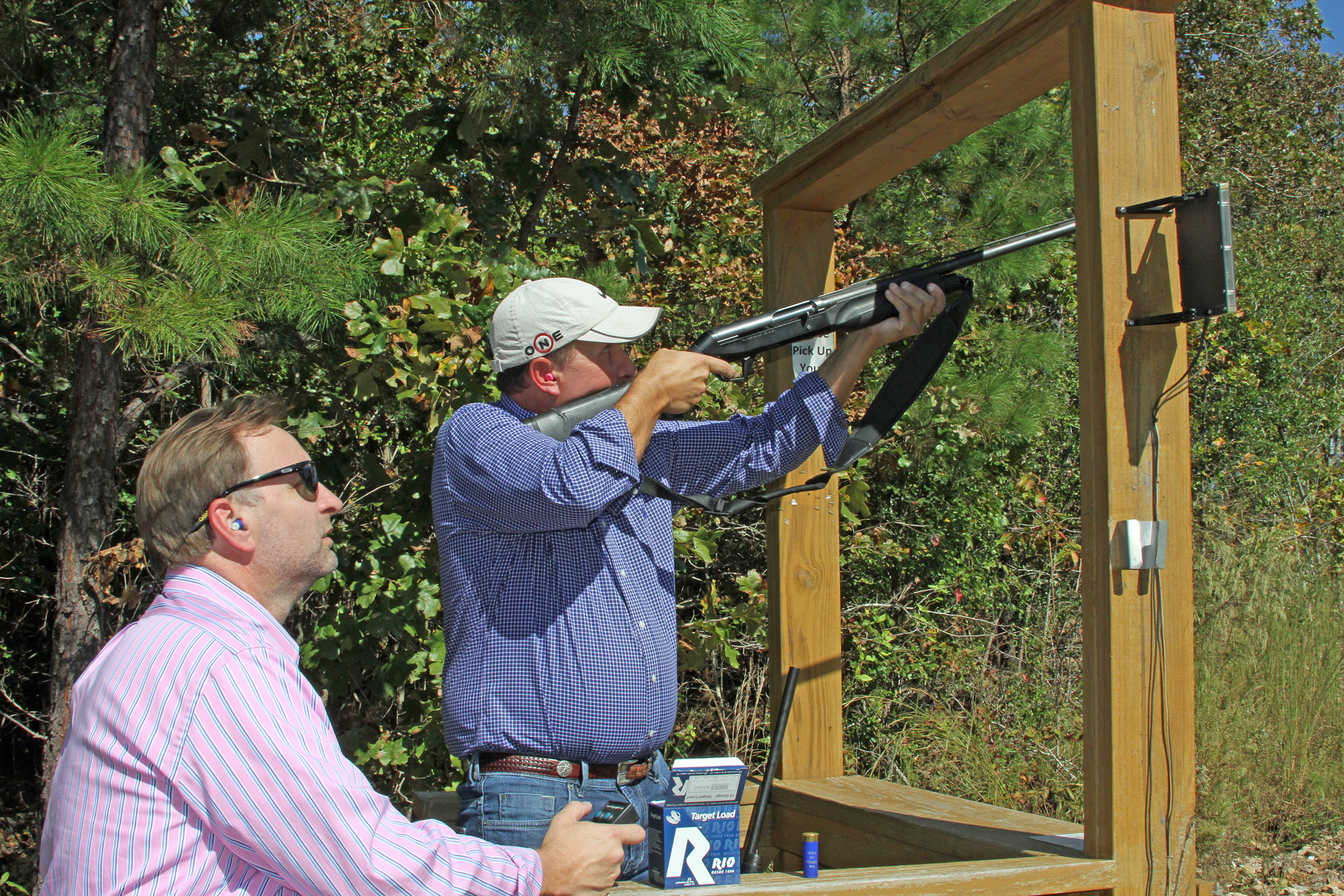by David Rainer
Alabama Department of Conservation and Natural Resources
There’s an old saying that to find a person’s passion, follow the money. That apparently is true for Alabama’s hunters, who fuel the economies in many parts of the state that need it the most.
To ensure the citizens of the state understand how important hunting is to the state’s well-being, both economically and culturally, Hunting Works for Alabama was formed last year to enlist the aid of the business community to spread this important message.
“Hunting Works for Alabama is basically a grass-roots group of people who want to make sure we inform the public about the enormous impact hunters have on our economy,” says Tim Wood, one of the four co-chairs of Hunting Works for Alabama. “You’re talking about a $1.8 billion industry in the state. You’re talking about $375 million that people spend on just hunting-related equipment. Travel expenses, hunters are spending about $405 million a year. That’s travel, fuel, food and lodging.
“In the rural part of the state, that is extremely important. The tax dollars and economic benefits in these rural areas, it would be devastating if they didn’t have it. You could look at Demopolis, Selma, Camden and Faunsdale and look at the effects on these areas. It would be absolutely devastating.”
Wood, the general manager of Central Alabama Farmers Co-ops in Selma, said the co-ops he manages cover the Alabama Black Belt, which is known for its rich soil, great hunting and fragile economy. Wood said the importance of hunting is reflected in their business model.
“Our business has changed,” Wood said at the second annual Hunting Works for Alabama meeting at the Civilian Marksmanship Program Talladega range recently. “We used to make money three months out of the year – March, April and May – from selling fertilizer, chemicals and seeds. Now we make our money in September, October and November. The paradigm has absolutely swapped.
“We’re also a sporting goods company that sells firearms. You don’t see that at farm stores. We sell hunting apparel. Our focus is on the hunting industry.”
Out-of-state hunters important
According to the latest figures, about 44,000 non-residents hunt in Alabama annually. Because the costs of non-resident licenses are significantly higher than resident licenses, those non-resident sales provide a significant funding source for the Alabama Wildlife and Freshwater Fisheries Division. The economic impact from non-resident hunters also ripples throughout the state.
“What I think is so important is the out-of-state dollars coming into the state,” Wood said. “You’re talking about some of the poorest areas in Alabama in the Black Belt. People travel from all over the United States to go deer hunting in Alabama. These people are paying lodging taxes, buying food and gas, and buying hunting licenses, which supports the Alabama Wildlife and Freshwater Fisheries Division. These tax dollars are not just being used by people in the hunting industry. It affects everybody in Alabama. Even the birders benefit from hunting in Alabama because the habitat enhancement made for hunting benefits all wildlife.”
Wood also outlines the importance of more hunting opportunities for the general public.
“Hunting leases have become so expensive,” he says. “People are having to pay $15 to $20 an acre for a place to hunt. The everyday hunter back in the old days didn’t pay anything. If you wanted to go hunting, you could go up the road and some farmer or landowner would let you hunt. Those days aren’t here anymore.
“That is why it is absolutely critical that programs like Forever Wild and the Wildlife Management Areas from Wildlife and Freshwater Fisheries provide the everyday citizen places to hunt and give them a reason to buy hunting licenses. It is crucial that this Division is properly funded.”
Become a member
Wood said anybody or any business that wants to become a member of Hunting Works for Alabama can sign up and it won’t cost a dime. Go to www.huntingworksforal.com for information or to join the organization.
“When you become a member, you’re able to come to our meetings and meet with other people in the industry,” he says. “You learn the facts and figures about the economic importance of hunting in the state. We are fortunate to be in Alabama, where we are a hunting and gun-friendly state. It’s a luxury, and we want to keep it that way.
“We’re trying to build a network of support. Eventually, we’re going to have to talk to our legislators, because there will be issues that come up that will end up in the Legislature. We need to have voices in the different districts who will contact these legislators to express how important hunting is to the state.”
After one year, Hunting Works for Alabama has 107 members with a goal of reaching at least 150 by the end of the year. Pam Swanner of Alabama Black Belt Adventures, David Dexter of Mobile and Grant Lynch, chairman of the Talladega Superspeedway, serve as the other co-chairs for the organization.
“We’re looking for slow growth,” Wood says. “When you have an all-volunteer staff, we have paying jobs we have to tend to. But for many of us, this does affect our paying jobs. And it also affects our way of life, which I think is more important.”





